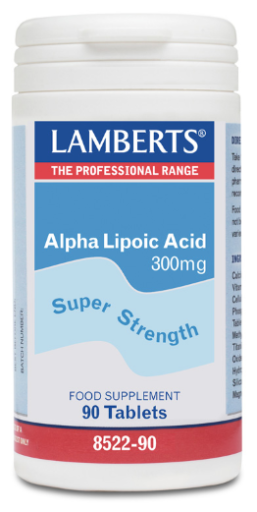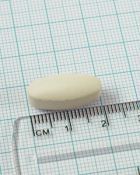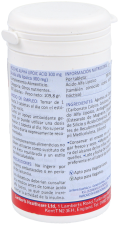It's PAYDAY 8% EXTRA discount on the entire web!
Minimum order amount د.إ296,00
Your coupon
It's PAYDAY 8% EXTRA discount on the entire web!
Minimum order amount د.إ296,00
Your coupon




Alpha Lipoic Acid (ALA), also known as thioctic acid or simply lipoic acid, is a vitamin-like substance that has generated a lot of interest in recent years, especially regarding both its ability to act as a potent antioxidant and its role in energy production.
Structurally, it is a fatty acid containing two sulfur atoms (at carbon 6 and carbon 8) linked by a disulfide bridge and is therefore considered an oxidant. It can be synthesized by the body from octanoic acid. Its sources include spinach, broccoli, liver, heart, kidney, and brewer's yeast.
The body's ability to synthesize this substance from the diet is very limited, making it difficult to obtain effective amounts of alpha lipoic acid. Supplementation has become routine and is now widely recommended by health professionals, especially for those weakened by oxidative stress.
The nutritional and clinical uses of lipoic acid were recognized and commercially promoted in the mid-1950s. Lipoic acid is a classic example of an orthomolecular nutrient, as Linus Pauling famously described.
Each tablet provides a total of 250 mg of Alpha Lipoic Acid, making it one of the most potent products on the market, and its tablets are manufactured under strict GMP pharmaceutical manufacturing standards.
